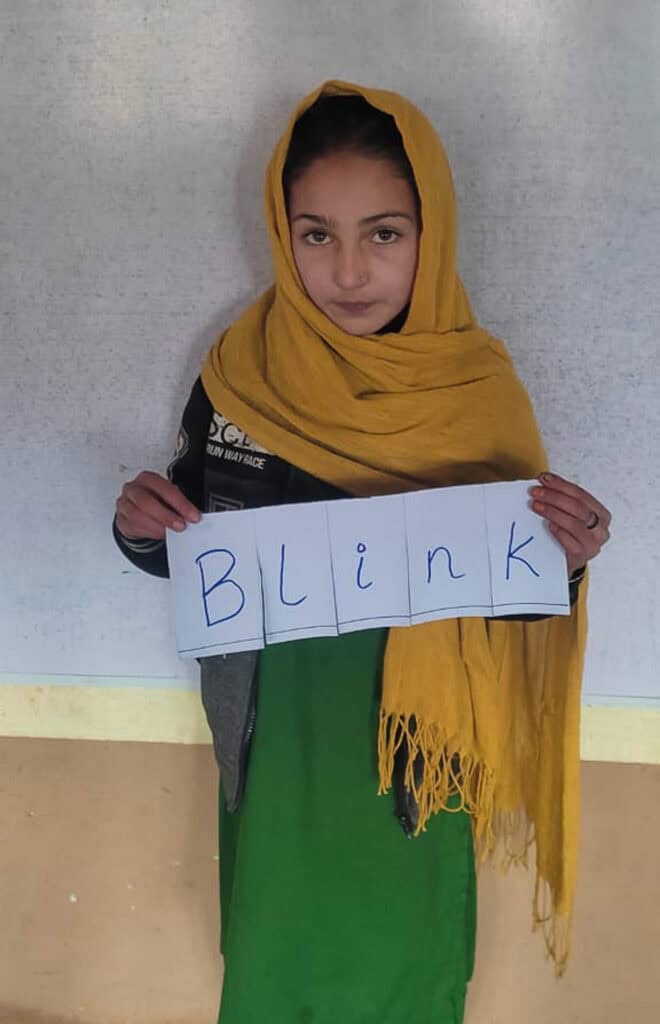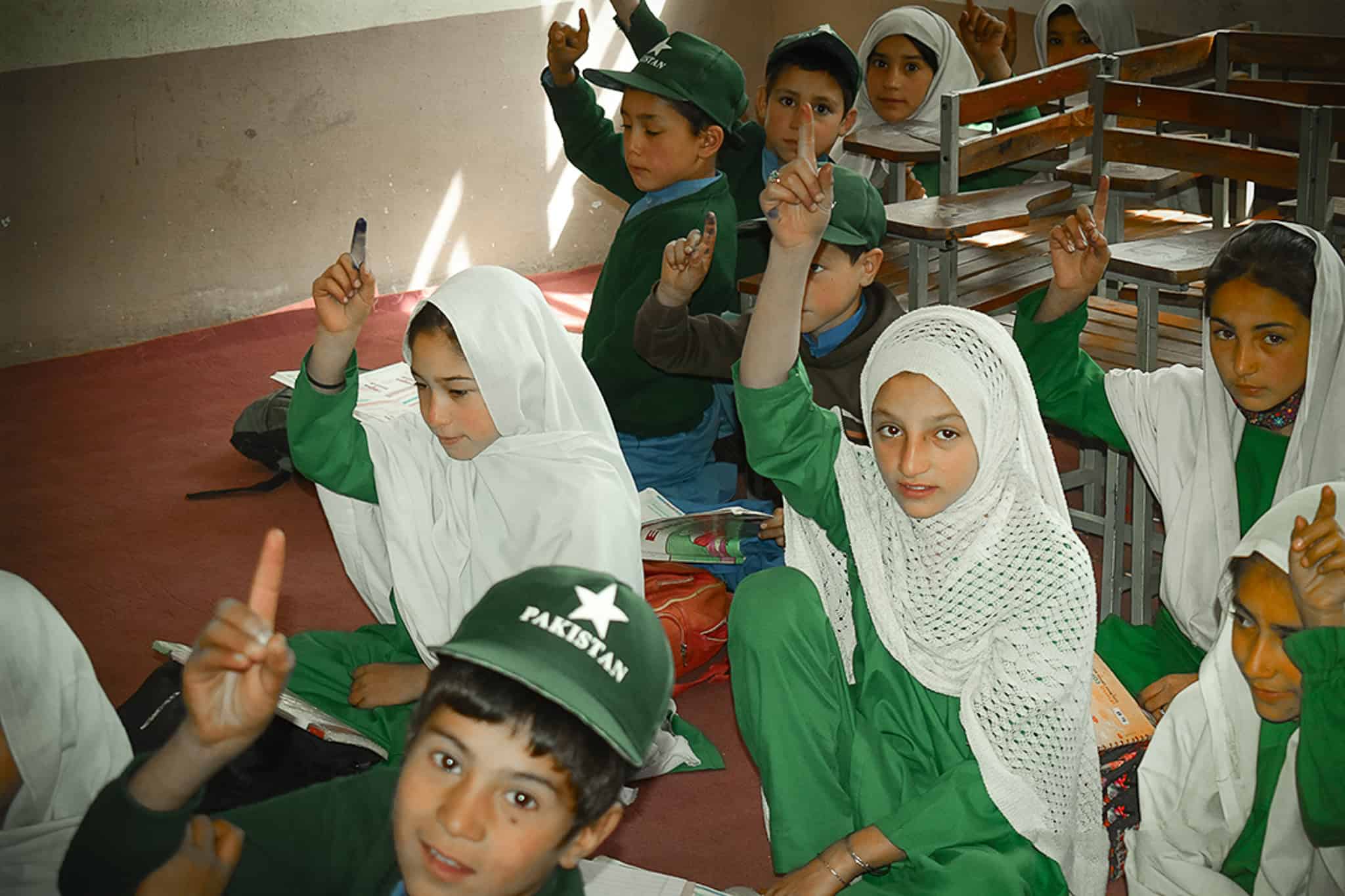Tucked away in the remote Reach Valley of Upper Chitral, Pakistan, Government Primary School Parech Rech serves just 35 students. With limited resources and a modest school environment, teachers are often challenged to find creative ways to make learning both possible and meaningful. For Syed Iftikhar Shah, one of the school’s dedicated teachers, this challenge became an opportunity to reimagine how English literacy could be taught.

When Syed conducted an assessment of his students’ skills, he discovered a worrying pattern. Many students were struggling so much with English that even the basics felt like a hurdle.
“I realised that most of my students were not even able to recognise simple words. Their performance in reading and writing was falling below the expected level.”
Mr Syed Iftikhar Shah, Teacher
Through careful classroom observations and conversations with the children, Syed identified the root of the problem: a large learning gap in English vocabulary. Without a strong foundation in word recognition, progress in reading, writing, and eventually speaking would remain out of reach. But rather than seeing this as a barrier, Syed decided to treat it as a chance to innovate.
His solution was straightforward, yet powerful: the Vocabulary Box.
“I designed a simple game-based solution that would not only improve reading and writing skills,” Syed explained, “but also make lessons fun and engaging.”
The Vocabulary Box is low-cost, educational game aimed not only at improving literacy skills, but also at igniting students’ love for learning by making lessons interactive and enjoyable.
Each student was given their own vocabulary box, made from reused packaging. Whenever they encountered a new word, whether from a textbook, a storybook, or even a newspaper, they wrote it down on a piece of paper. After sharing the word with their classmates, they placed it in their box. Over time, these small slips became building blocks for a new way of learning.


“At the end of each week, we open the boxes and use the words to complete various fun activities together,” said Syed. “We do sentence creation, spelling correction, unscrambling jumbled words, and even creating new words from the old ones. The kids love it!”
One of the most striking aspects of the Vocabulary Box is its accessibility. With nothing more than scrap paper, pencils, and small recycled boxes, the innovation is easy to implement and cost-effective, an important factor for any school with limited resources. Yet its impact has been far greater than its modest materials might suggest. Students are now more engaged, motivated, and proactive in their learning. By collecting words daily both inside and outside the classroom, they are building both their vocabulary and their confidence and independence.
“In the beginning, students lacked interest and they weren’t consistent, some even forgot to collect words,” Syed admitted.
“But I didn’t give up. I encouraged them constantly and monitored their progress every week. Slowly, they showed more interest as their confidence grew.”
The change has been remarkable. What was once a quiet, hesitant classroom has transformed into a lively environment where children read aloud with excitement, craft imaginative sentences, and correct one another’s spelling with pride. Through the Vocabulary Box, English has shifted from being a subject of struggle to one of joy, and for Syed’s students, every new word has become a step toward a brighter educational journey.
Watch below: Syed discusses his journey with human-centred design and how this impacted his innovative classroom solution.
Learn more about our work in Pakistan.
